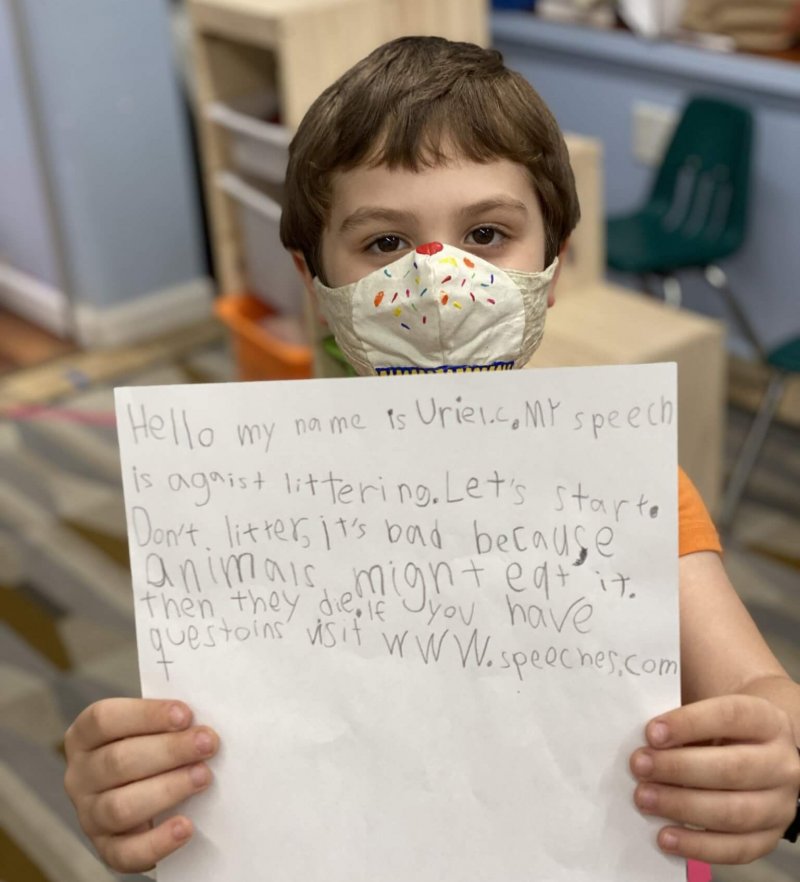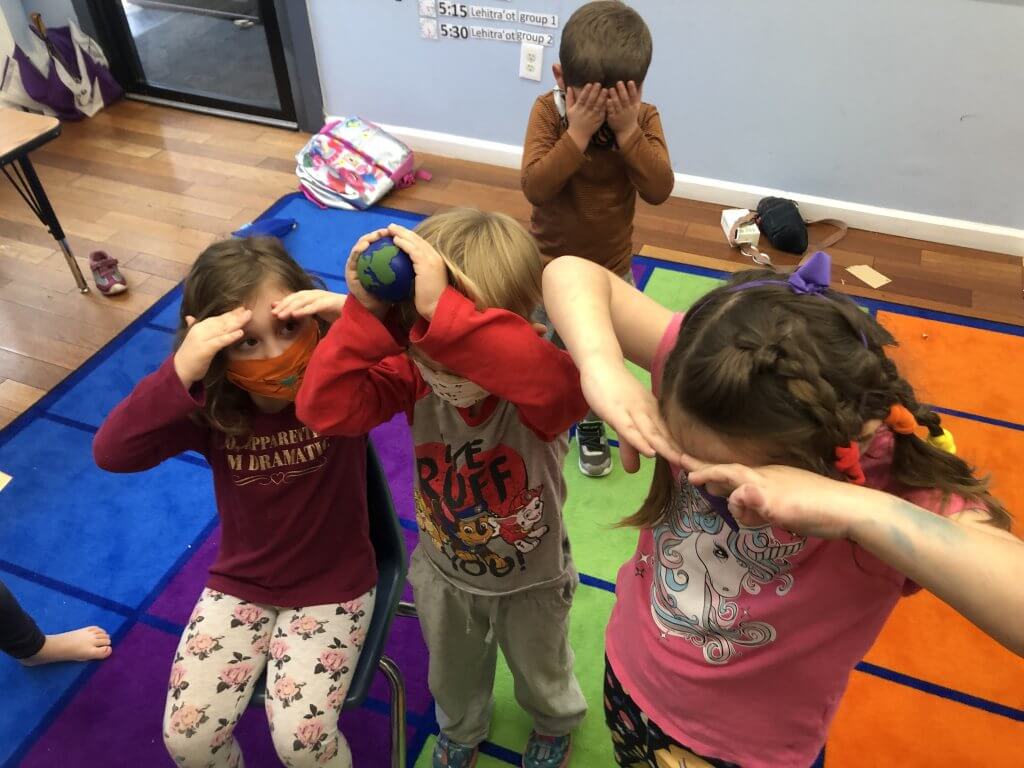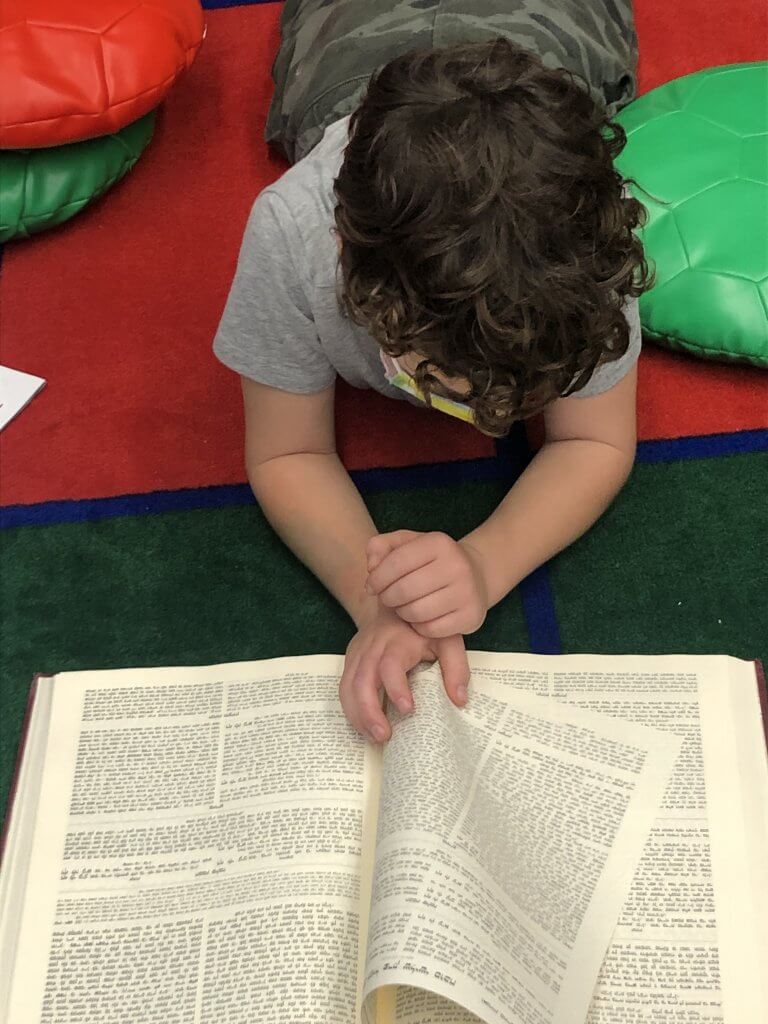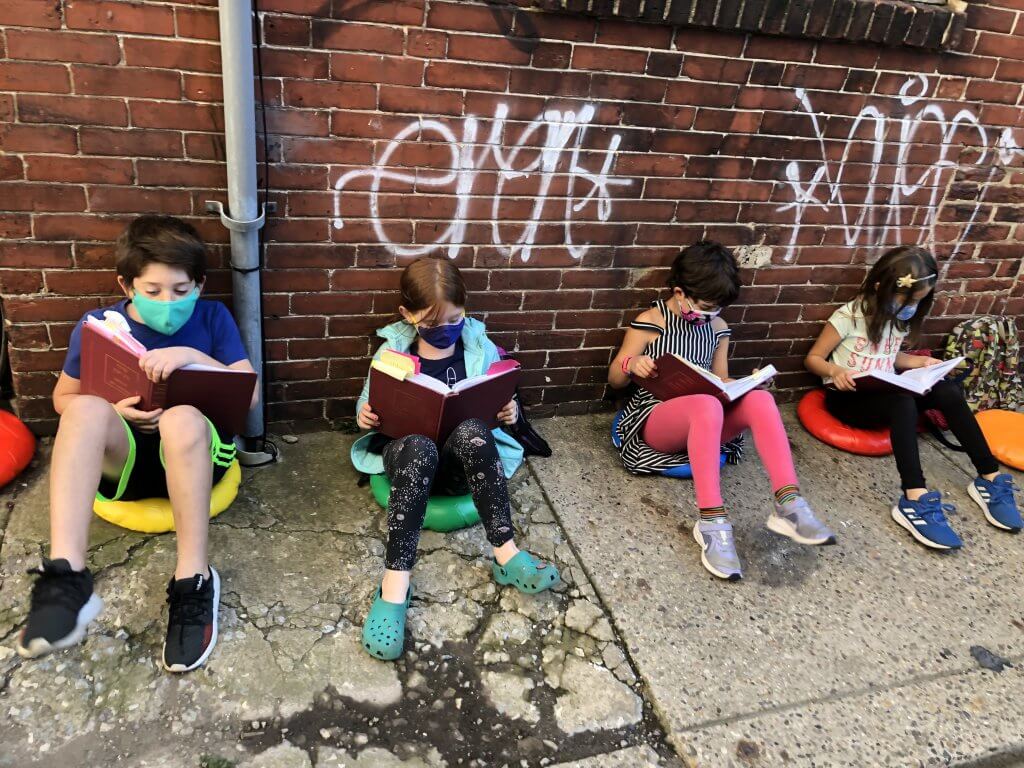
Finally we got to hear God’s response to Bnot Zelophechad’s (Zelophechad’s daughters) request to be able to inherit their father’s land! Spoiler: God agrees with them and thinks their request is completely just.
We dove deeper into the situation of women in the Torah and discovered that men had autonomy in the Torah but that women, children, and slaves did not.
- This is unjust because everyone should get to be a leader.
- Unjust, because everyone should do what they want
- Some places it is still like this but it is not like this usually
- That’s not fair [for a man to decide for a woman who she’s going to marry] because she might get married to a villain.
- It does seem fair for kids to have others help them with their decisions if they’re really young.

Our discussion of who had autonomy and who did not shifted our perspectives on the weight of Bnot Zelophechad’s actions. When asked if standing up and speaking out was easy or hard for Bnot Zelophechad, Shorashim kids thought that…
- This was hard because they were men and not women and maybe people wouldn’t listen.
- Anyone can talk to God.
- Still easy, because they only actually said like seven words.
The precedent set before this story was that only men could inherit land, whether they be sons of the deceased, brothers, or uncles. After Bnot Zelophechad brought the issue to Moshe, God declared that the order of inheritance is as such: son → daughter → brother → father’s brother → closest male relative in the same tribe. The Nitzanim (3rd and 4th graders) had some questions about this:
- Why aren’t other women in this lineup?
- What if the closest relative was a woman, not a man?
- Why does land have to stay in the same tribe?
- Is it the same process if a woman who owns land dies? Does it still go to her son first and so on?

The Garinim (preK and K kids) were similarly dissatisfied with this conclusion. Several of them are in families with multiple genders of children. The girls in particular were confused and frustrated about what would happen for their families:
- What if there’s a son and a daughter? Would my brother get all the stuff?
- Would my brother get all our parents’ stuff even though I’m older?
- What if the daughter is older and the son is young enough to not really know what to do with their parents’ stuff? I think in that case she should get it, but he can still use it.
The fact that only daughters of the deceased were included in the line of inheritance gave the Nitzanim some pause. We were happy that women were included at all, but felt some confusion as to why it was only the daughters. What about sisters? Mothers? Nieces? Ultimately we came to the conclusion that it was like God and Moshe were “throwing them a bone.” Bnot Zelophechad had a good case as to why they should be able to inherit their father’s land, so they were rewarded. However, God wasn’t yet willing to include all women in this lineup and make it truly equal. So, is this justice? Here’s what the Nitzanim had to say:
- No, because women still aren’t equal.
- Yes. Bnot Zelophechad were rewarded for trying to make change in a respectful way. If they were mean about it, I don’t think they would’ve been able to inherit the land.
- Yes, because women are now included and now they can fight for more rights.
- No, because it should have been this way from the beginning.

The Shorshim discussed what changing a precedent looks like in our own lives, specifically at Makom Community. Our learners decided that if we have a problem with our brit (two-way promise) somewhere down the road we can’t just change whatever we want. It’s important to involve everyone.
- You need to tell everyone about it.
- Listen to each others’ responses.
The Garinim also zoomed out from the story to look at the framework for how to go about making change in our communities.We created a chart showing the steps for making change alongside examples from the text corresponding to each step:
- Step 1: Notice an injustice
Bnot Zelophechad noticed that their father’s property would leave their family because he didn’t have sons to inherit it. - Step 2: Make a plan
Bnot Zelophechad came prepared with a solution – that they as daughters should be able to inherit their father’s property. - Step 3: Know who to ask for help
They realized they couldn’t make change happen on their own, so they appealed to Moshe and the other leaders in their community. - Step 4: Implement your solution or keep trying to find a solution that works
Bnot Zelophechad talks to Moshe, Moshe talks to God, and the rules for their community change!

Then we took this change-making framework and brought it back to our lives. What’s an injustice or a problem that you notice and want to change? I asked. “There’s a president that I don’t like or agree with!” There’s our step one – noticing injustice. The first set of plans we came up with were around political action – making signs, encouraging voting, and asking for lots of help from our parents and other grownups around us who can actually do the voting.
After exploring that avenue of change-making, I asked us to reverse backwards to the original injustice we noticed. What about this president didn’t we like or was causing injustice? One kiddo said that he doesn’t treat Black people well and encourages other people not to treat them well too. That’s a different problem, and calls for a different plan. Kiddos in Garinim can’t vote someone into or out of office, but we can go out of our way to treat Black folks and other people of color well. And we can deal with our own feelings about how we see other people responding to and treating Black people. Who can we ask for help with this injustice?
- Adults in our lives
- God
- White people
Our learners are processing big ideas and concerns! We love using Torah as a guide to our journeys through complicated situations and issues in our real lives. Hope you can find some inspiration from our learning to keep bending the arc of history towards tzedek (justice).
